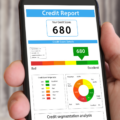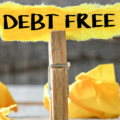9 Steps to Break Bad Credit Card Habits
April 25, 2023
The convenience of swiping a credit card can be tempting, but it often comes at a high cost. Mounting debt, higher interest rates, and a seemingly endless cycle of repayment are just a few. If you’re ready to break free from the credit card habit and take control of your financial stability, these practical tips and effective strategies will help you kick your credit card dependency to the curb. By embracing responsible spending habits and cultivating financial discipline, you can transform your relationship with money and pave the way for a brighter, debt-free future.
Before discussing how to manage credit card habits, let’s clearly understand what a credit card is and its role in our finances. Used wisely, it can be a great financial asset.
Topics Covered... What is a Credit Card? What are the Key Features of a Credit Card? 9 Steps to Breaking Bad Credit Card Habits Create a Budget Cut back on non-essential spending Pay off debt Limit credit card use Automate your payments Avoid new credit card applications Seek alternative payment methods Consider credit counseling Stay focused on healthy credit card usage What Can CreditU Do For You? Key Insights – Breaking Bad Credit Card Habits
What is a Credit Card?
A credit card is a payment card issued by a financial institution, typically a bank, that allows cardholders to borrow funds with which to pay for goods and services. The borrowed funds come with the condition that the cardholder will pay back the borrowed amount, plus any additional agreed-upon charges, either in full by a specific date or through a deferred payment plan. This form of credit is one of the very first ways you can use to establish a credit history.
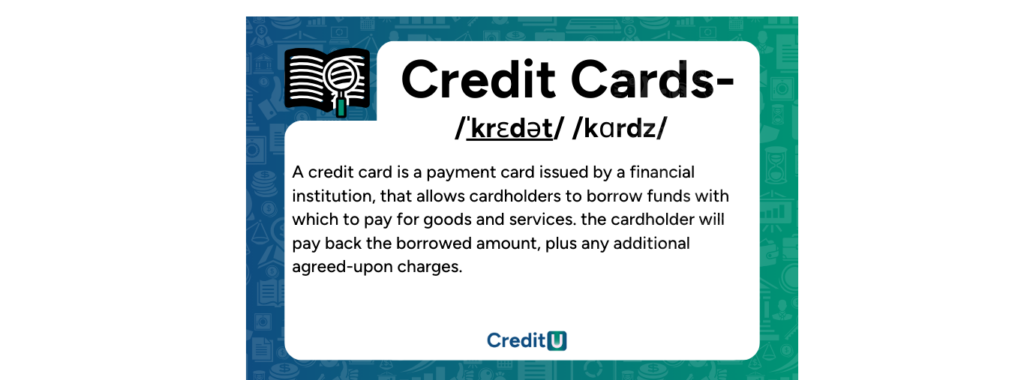
Key Features of Credit Cards
- Credit Limit: Each credit card comes with a maximum limit up to which a user can spend. This limit is determined by the issuer based on the cardholder’s creditworthiness.
- Interest Rates: If the cardholder doesn’t pay off the full balance by the due date, interest will be charged on the remaining amount. This interest rate, often referred to as the annual percentage rate (APR), can vary widely between credit card issuers and types of cards.
- Grace Period: This is the time period cardholders have to pay off their balance before interest starts accruing. It’s typically between 21-25 days from the end of a billing cycle.
- Rewards and Benefits: Many credit cards offer rewards in the form of cash back, points, or miles. These rewards can be redeemed for various benefits, depending on the card’s program.
- Security Features: Credit cards come with security features like a personal identification number (PIN), card verification value (CVV), and sometimes even chips for added security against fraud.
- Fees: Depending on the credit card, there may be various fees associated with its use, including annual fees, cash advance fees, and late payment fees.
- Minimum Payment: If a cardholder can’t pay off the full balance, they are typically required to make a minimum payment by the due date. This payment is a small percentage of the total outstanding balance.
Using a credit card responsibly by making timely payments and managing the balance can help cardholders build a positive credit history, which can be beneficial for future financial endeavors. Conversely, mismanagement, like missing payments or consistently carrying a high balance, can lead to debt accumulation and negative impacts on one’s credit score.
9 Steps to Break Bad Credit Card Habits
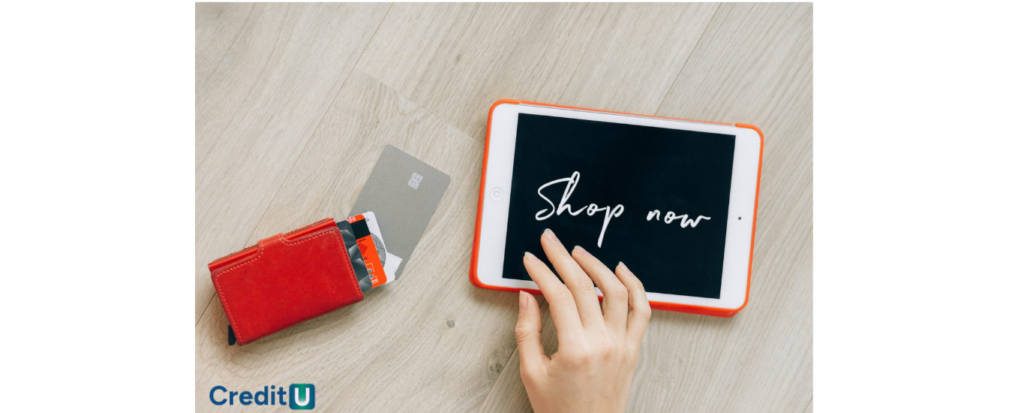
Assess your spending habits by keeping track of your credit card purchases for a month to understand where your money is going and identify any unnecessary spending. Staying on top of your spending is the first step to taking corrective action.
In today’s fast-paced digital age, credit cards have become an almost indispensable tool for daily transactions. However, with convenience comes the lurking danger of spiraling into bad habits that can impact one’s financial well-being. Bad credit card habits are easy to form but can lead to prolonged financial consequences. Knowing what they are and finding the means to breaking bad credit card habits is crucial for maintaining sound fiscal health. In this article, we will explore 10 essential steps to identify, understand, and ultimately break these negative credit card behaviors, setting you on the path to responsible financial management.
01 – Create a Budget:
A budget is the foundation of your financial well-being. By determining how much you can afford to spend each month and allocating your funds accordingly you can plan for your finances more accurately. All of us have a limited amount of income. Credit cards give you some space to push back some spending. However, your finances can spiral out of control if not thoroughly monitored. Therefore, keeping a tab on your expenses and having a clear idea as to what you can spend each month based on your budget helps prevent future financial trouble. Here are a few more reasons as to why creating a budget would help break bad credit card habits.
Limits Impulse Spending: By allocating specific amounts for different categories, a budget can deter spontaneous and unnecessary purchases, reducing the reliance on credit cards for such spending.
Ensures Timely Payment: A budget ensures that you have set aside money to pay your credit card bills in full and on time, avoiding late fees and interest accrual.
Reduces Debt Accumulation: By sticking to a budget, you’re less likely to spend more than you earn, which in turn reduces the likelihood of accumulating credit card debt.
Promotes Conscious Spending: With a budget, every purchase becomes a conscious decision, ensuring that you only use your credit card when it aligns with your financial plan.
Prevents Maxing Out Credit Cards: Knowing your spending limits helps in preventing you from reaching or exceeding your credit card limits, which can negatively impact your credit score.
02 – Cut back on non-essential spending:
The first steps to this process are prioritizing your expenses and eliminating any unnecessary purchases. These may include anything from subscriptions, entertainment, to dining out. Knowing what you spend money on can help you cut back when required. More often than not you will use your credit cards to splurge. Therefore, when it comes to breaking credit card habits it is important that you know where you can shed. Here are some areas you can look at for starters.
Prioritize Expenses: Begin by classifying your expenditures into two categories: needs and wants. Needs are things like housing, utilities, groceries, and insurance, while wants might include brand-name clothing, luxury items, or the newest tech gadget.
Review Subscriptions: Many of us subscribe to multiple services, often forgetting what we’re even paying for. Periodically review all your subscriptions, be it magazines, streaming services, or gym memberships. Do you still use all of them? If not, it’s time to unsubscribe.
Entertainment Budgeting: While entertainment is vital for relaxation and mental health, there are always ways to enjoy it without overspending. Instead of frequent cinema outings, consider movie nights at home.
Dining Smarter: Eating out or ordering takeout can quickly add up. It’s not about cutting it out entirely but making smarter choices. Choose cooking at home most days, reserving dining out for special occasions. Also, take advantage of deals or early-bird specials when you do decide to treat yourself.

03 – Pay off debt:
One of the key steps in breaking bad credit card habits is addressing any existing debt head-on. High-interest credit card debt can spiral out of control if not managed effectively. Here’s how to approach it:
Target High-Interest Debt First: Prioritize repaying credit cards or loans with the highest interest rates. This not only reduces the total interest you’ll pay over time but can also alleviate the stress of watching your debt grow rapidly.
Formulate a Repayment Plan: Don’t just pay the minimum; create a feasible plan to pay off your debt aggressively. Whether it’s allocating a certain percentage of your income or setting aside lump sum amounts, having a plan in place is crucial.
Steer Clear of Additional High-Interest Debt: As you work on paying down your existing debt, it’s imperative to avoid accumulating more, especially at high interest rates. This might mean resisting the temptation of new credit card offers or promotional shopping sprees.
04 – Limit your credit card use:
Your credit card use should be accurately planned. Assign your credit card to specific purchases only and try as much as possible to avoid impulse purchases unless it is an emergency or unexpected situation. By being more intentional about your credit card spending, you can sidestep the pitfalls of accumulating debt and interest.
Reserve for Essentials: Dedicate your credit card primarily for significant or essential expenses. This can help you track bigger payments while reducing the temptation to swipe the card for trivial purchases.
Cash or Debit for Daily Expenses: For everyday spending like groceries, transport, or casual dining, consider using cash or a debit card. This way, you’re spending money you
Categorize & Allocate: Recognize the types of expenses you regularly incur. By categorizing them, you can decide which ones are suited for credit card payments and which ones for cash or debit. This separation not only provides clarity but also helps in budgeting.
Emergency Uses: It’s practical to keep your credit card on hand for unforeseen situations, such as car repairs or medical emergencies. However, always reassess what constitutes a “real” emergency to avoid unnecessary debt accumulation.
05 – Automate your payments:
Ensure that your credit card bill is paid on time each month. Avoid paying late fees and interest, when possible, by setting up automatic payments. Make sure none of your credit cards go unpaid to avoid unnecessary fees.
Timely Bill Clearances: By automating your credit card payments, you guarantee that your bills are paid punctually each month, eliminating the risk of missed payment dates.
Avoid Unwanted Fees: Late payments often come with hefty penalties. Automatic payments ensure you sidestep these unnecessary costs.
Maintain a Healthy Credit Score: Consistently paying your credit card bill on time positively impacts your credit score. Since payment history is a significant factor in credit scoring, automated payments help in building and maintaining a strong credit profile.
Reduce Financial Stress: Knowing that your credit card bill will be taken care of without manual intervention each month can reduce the mental load of having to remember yet another task.
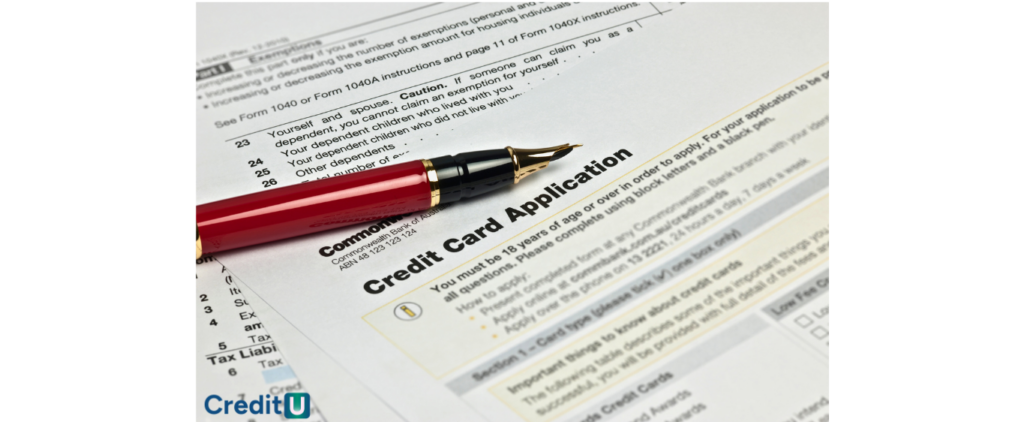
06 – Avoid new credit card applications:
When working to break bad credit card habits, it’s crucial to be cautious about applying for new credit cards. Every time you apply, a hard inquiry is made into your credit report, which can cause a temporary dip in your credit score. Instead of expanding your potential debt by opening new credit lines, focus on managing and optimizing the ones you already have.
Credit Score Impact: Frequent applications can raise red flags for potential lenders, giving the impression of financial desperation or mismanagement. It’s not just about the temporary dip; multiple hard inquiries over a short span can lead to a more significant decrease in your score.
Manage Existing Lines: Instead of acquiring new cards, direct your energy towards efficiently managing your current balances. Aim to pay off outstanding amounts and strategize to make the most of your existing card benefits.
07 – Seek alternative payment methods:
Consider using a debit card, cash, or prepaid card for your everyday spending instead of a credit card. Use your credit cards wisely. Use them in a way that you maximize the loyalty programs, cash-back offers etc. And use cash-based options more often. Using a mix of payment methods allows you more space to use your credit cards wisely and helps break bad credit card habits.
Debit Over Credit: Choose a debit card for daily purchases. Unlike credit cards, debit cards take money directly from your bank account, ensuring you only spend what you have.
The Tangibility of Cash: There’s a psychological element to spending cash. It feels more “real” than swiping a card. Allocating a specific cash amount for certain expenses can help you be more mindful of your spending.
Prepaid Cards: These act as a middle ground between debit and credit cards. You load a set amount onto the card, and once it’s spent, that’s it. This can help curb excessive spending while still offering the convenience of card payments.
Strategic Credit Card Use: While the goal is to break bad habits, it’s not about abandoning credit cards entirely. Instead, use them to your advantage. Benefit from loyalty programs, cash-back offers, and other rewards, but ensure you’re paying off the balance in full each month to avoid interest.

08 – Consider credit counseling:
If you find yourself constantly battling bad credit card habits and accumulating debt, seeking professional guidance might be the right step. Organizations like American Consumer Credit Counseling (ACCC) are specifically designed to assist individuals in your situation. As a non-profit credit counseling agency, ACCC offers complimentary sessions to evaluate your financial circumstances. Their expert advice can equip you with the tools and strategies needed to break the cycle of detrimental credit card usage and set you on a path towards better financial health.
09 – Stay Focused on Healthy Credit Card Usage:
Staying committed to breaking bad credit card habits requires a clear vision of the benefits awaiting you. Remembering the financial freedom and peace of mind that comes with responsible credit card usage can be a powerful motivator.
Visualize the Benefits: Constantly remind yourself of the advantages of curbing excessive credit card use. This includes a reduced financial burden, fewer interest payments, improved credit score, and a healthier overall financial picture.
Leverage Financial Tools: Utilize apps and tools designed to monitor and control credit card usage. An app like CreditU can be invaluable, not just for tracking your expenses but also for getting insights into your spending habits. Such tools can send you alerts, reminders, or even insights that can help you avoid common pitfalls.
Celebrate Milestones: Recognize and celebrate small victories in your journey. Did you manage to cut your credit card spending by 50% this month? Reward yourself (within budgetary limits, of course) to reinforce positive behavior.
What Can CreditU Do For You?
Credit cards are a great way to build credit, but they can also lead to bad habits that damage your credit score. One way to break these habits is to download a personal finance app like CreditU. CreditU is designed to help you manage your finances and guide you towards better financial habits.
With CreditU, you can also track your spending and see where your money is going. This will help you identify areas where you can cut back and save money. Create and track financial goals with CreditU like paying off your credit card debt or saving money. Let CreditU help you stay focused and give you a clear path to the finish line!
Another helpful feature of CreditU is that it provides you with the ability to routinely monitor your credit score. This will help you understand the impact that your credit card habits are having on your credit score. By seeing your credit score and report, you can identify areas where you need to improve and make changes.
CreditU can be a great way to break bad credit card habits. With its helpful features and tools, you can take control of your finances, improve your credit score, and build better financial habits for the future. Don’t let bad credit card habits dictate your future, sign up for CreditU today and forge a new path to financial freedom!
Key Insights – Breaking Bad Credit Card Habits
1. Overcoming bad credit card habits is a liberating and empowering journey towards financial stability.
2. Embracing responsible spending habits, cultivating financial discipline, and utilizing alternative payment methods are crucial for transforming your relationship with money and paving the way for a brighter, debt-free future.
3. Remember, conquering the credit card temptation starts with just one swipe at a time.
4. Stay focused on your goals, persevere through the challenges, and celebrate your milestones along the way to a healthier financial life.
Last Updated on January 11, 2024 by Dilini Dias Dahanayake


